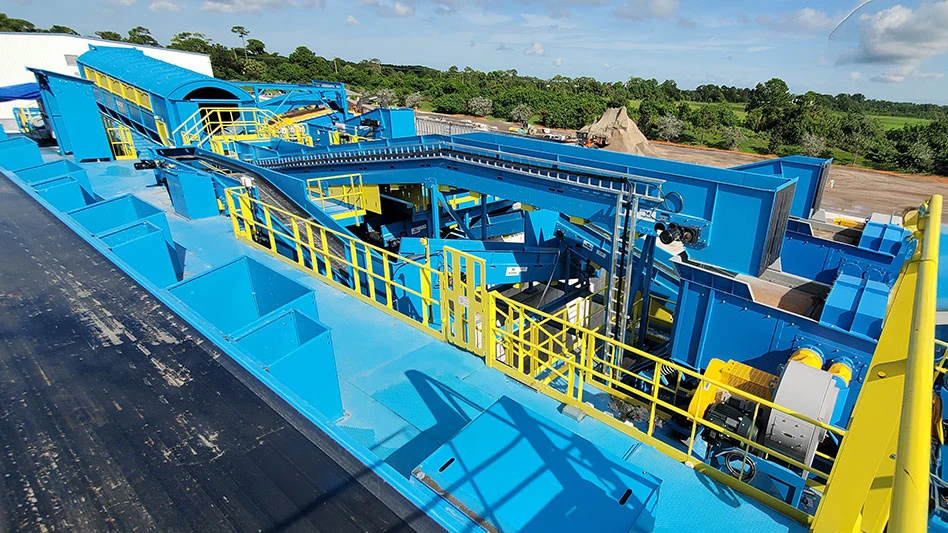CALIFORNIA E-SCRAP BILL ADVANCES
A California bill that would require electronics manufacturers to accept cradle-to-grave responsibility for their obsolete and toxic products has passed two legislative committees and is headed to the Assembly Appropriations Committee.
SB 20 requires all manufacturers that sell computers, TVs and other specified hazardous electronics in California— whether through retail outlets or the Internet—either to develop and pay for a recycling system approved by the California Integrated Waste Management Board or to let the state contract for recycling by paying a fee on each unit sold equal to the cost of recycling.
| DELL ANNOUNCES PRODUCT RECOVERY PARNTERS |
|
Dell, Round Rock, Texas, will work with Dallas-based Resource Concepts Inc. (RCI) and California-based Image Microsystems Inc., with locations in Los Angeles and Austin, to support its environmental programs for obsolete computer equipment. Dell is building a national network of approved recyclers to improve the economics and convenience of computer recycling for its customers across America and to properly dispose of customers’ old systems with minimal environmental impact. "We remain committed to making computer recycling affordable and easy for customers and to building a competitive business infrastructure for computer recycling and reuse," Pat Nathan, Dell’s senior executive for the environment, says. "Our environmental partnership with RCI and Image Microsystems is an important step toward that goal." Dell’s criteria for its recycling vendors requires hardware demanufacturing; no exporting of environmentally sensitive waste to developing countries; no disposing of environmentally sensitive materials in landfills; maximizing the amount of materials recovered for reuse; and employing of processes and certifications that protect worker safety. Dell continues to evaluate other potential recycling vendors. |
Additionally, consumers would pay a small one-time fee at the time of purchase to cover collection of the unit when it becomes obsolete.
Manufacturers and recyclers also would be prohibited from exporting the waste to developing nations like China and India.
Senator Byron Sher, author of the bill, accepted a series of amendments to the bill, among them:
• Clarifying and narrowing the scope of the bill to include only cathode ray tube devices and other video display devices that the Department of Toxic Substances Control determines contain hazardous waste.
• Capping consumer collection fees at $5 for most computer monitors and $10 for large screen TVs. No such caps for manufacturers that opt to pay a manufacturer fee are included.
• Establishing an initial 50 percent recycling target for 2006 and authorizing the California Integrated Waste Management Board to set subsequent targets.
E-RECYCLING OPERATIONS RECEIVE CERTIFICATION
The electronics recycling activities of Recycle America Alliance LLC (RAA), a subsidiary of Houston-based Waste Management Inc., have received certifications for quality and environmental management standards.
The ISO 9001 and 14001 certifications are the first to be registered for a national electronics de-manufacturer in the U.S. The certifications apply to RAA’s electronics recycling plants in Minneapolis, Minn.; Phoenix, Ariz; Kernersville, N.C.; and Humble, Texas.
Steve Ragiel, RAA president, says, "Achieving ISO certification for our quality and environmental management systems is further evidence of our commitment to excellence for our customers while protecting the environment for our communities."

Explore the August 2003 Issue
Check out more from this issue and find your next story to read.
Latest from Recycling Today
- Greenwave raises revenue but loses money in Q2 2025
- Recycled steel prices hold steady
- EY says India’s need for scrap imports will continue
- Coming full circle
- Amcor, DCM introduce fertilizer packaging with 35 percent recycled content
- Comstock Metals gets closer to commissioning commercial-scale solar panel recycling facility
- Washington selects Circular Action Alliance as PRO
- Smurfit Westrock expands in Latin America





